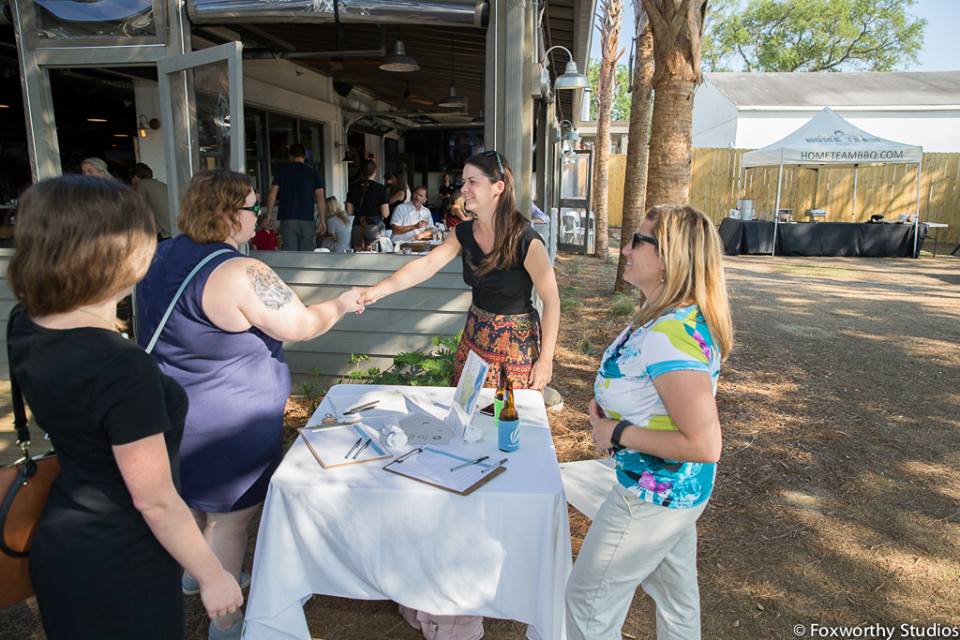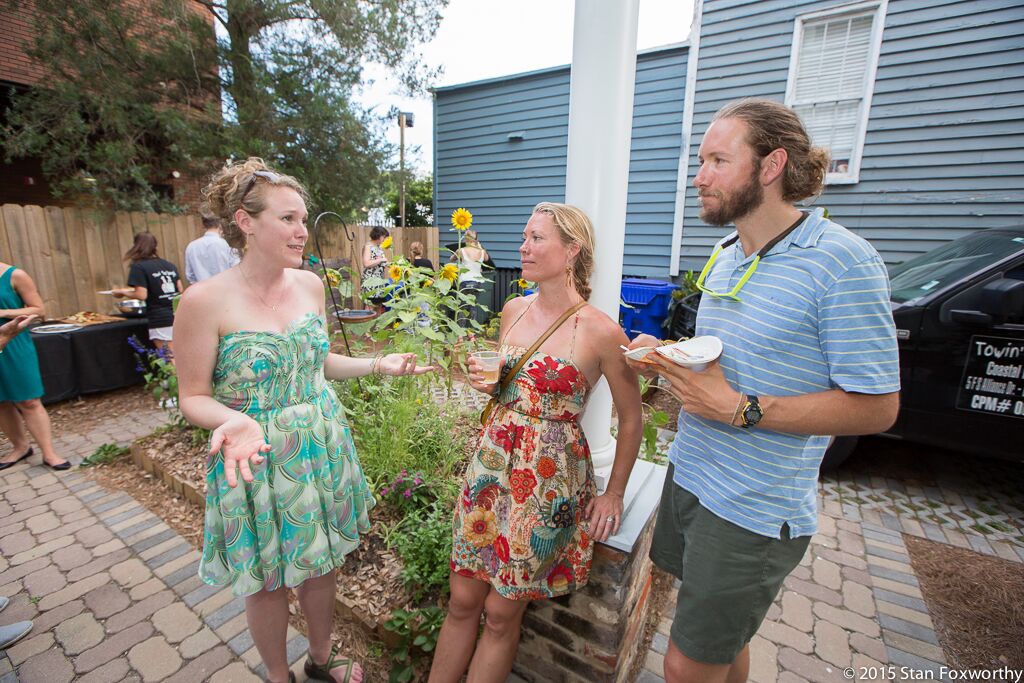Art
Last night’s Upper Peninsula Gathering took place on 126 Williman Street, at the new downtown location of lowcountry’s own Fiery Ron’s Home Team BBQ. The topic of the night was art, so SI prepared accordingly.
As guests enjoyed their delicious BBQ, donated by from HomeTeam, Cathryn Zommer of Enough Pie, and Fiorenzo Berardozzi with cone 10 studios took the stage.
Enough Pie is a catalyst for inclusive and inspiring community engagement in the Upper Peninsula, through dynamic partnerships, artistic collaborations and creative placemaking.
Berardozzi is one of cone 10 studios’ owners.
The studio houses a group of ceramicists using a gas-reduction kiln to minimize the effects on the environment.
Additionally, a representative from
The Spoleto Festival came and spoke last night. Spoleto’s prop warehouse is located in the Upper Peninsula. The representative talked briefly about their incentive to come to theUpper Peninsula for more space for all of their props, costumes and equipment, reiterating the importance of organizing with sustainable practices in the area. The Spoleto Festival, a staple of Upper Peninsula living, is held annually, in
May.
Art is a very important part of life on the Upper Peninsula, and with so many great organizations, communities and cultures represented around the UP area, it is easy to understand why.
The Upper Peninsula Initiative is a public-private planning effort managed by the City of Charleston and the backbone organization, The Sustainability Institute.
For more information, please visit CharlestonUp.com or email info@charlestonUP.com.
Photos by Stan Foxworthy Foxworthy Studios.
*UPI is a community centered, neighborhood oriented program created with the needs of the areas it serves in mind. The results of any survey conducted do not use empirical m
ethods of data collection, and are not necessarily reflective of the community at large.






